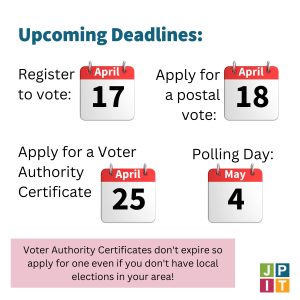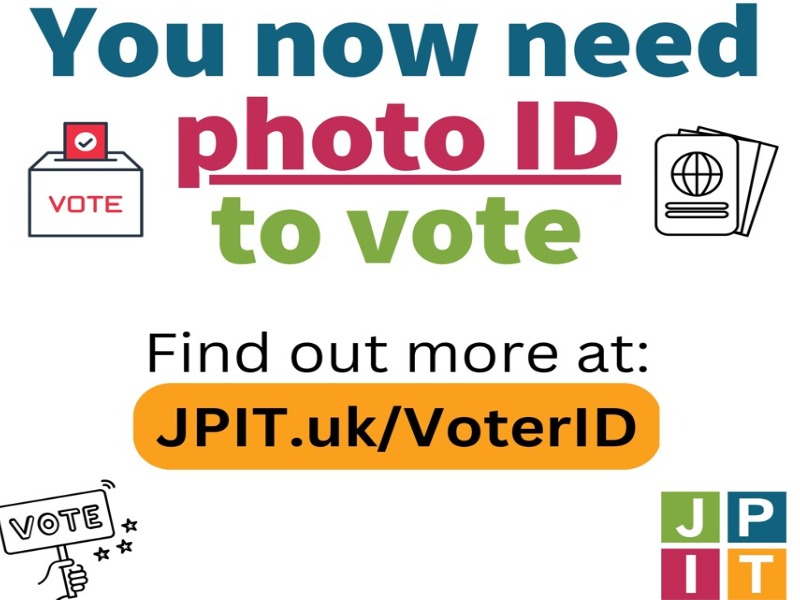Churches are raising awareness of a new requirement that people show photo ID in order to vote in some elections.
The local elections being held in England on 4 May will be the first where voters are required to show photo ID at the polling station. The rule will apply to all future UK parliamentary elections.
Recent research has found that only a third of voters are aware of the need to bring photo ID, and that around two million people in the UK do not currently have an acceptable form of photo ID. These are more likely to be people who are disabled, from traveller communities, people experiencing homelessness, older people, and trans and non-binary people.
Ahead of the elections, people without a form of photo ID can apply for a free ‘Voter Authority Certificate’, either online or from their local council, but need to do so by 25 April.

Church ministers and community leaders are being asked to highlight the need for people to get photo ID in order not to lose their right to vote.
The Joint Public Issues Team of the Baptist, Methodist and United Reformed Churches has launched an awareness campaign about Voter ID.
It is designed to help ensure that, through local churches, the groups most likely to find this change a barrier to voting are informed and supported. The campaign will focus on enabling church ministers and community leaders to inform their congregations and communities about the changes to Voter ID.
Simeon Mitchell, leader of JPIT said: “The government has largely placed the burden on local councils for raising awareness of this change and helping people secure a voter identification certification. However, with no extra funding and already overstretched resources, their reach may be limited. This is deeply concerning, as it could lead to significant numbers of people being disenfranchised.
“Elections are the central way that people can participate in decision-making in a democratic society. Without a vote, you lose your voice. Churches often reach deeply into communities and have contact with many groups, so we want to use these networks to spread the word about Voter ID. We should all care about who our representatives are and seek to enable others to be part of the democratic process too.”
Posters and further information are available from jpit.uk/VoterID

